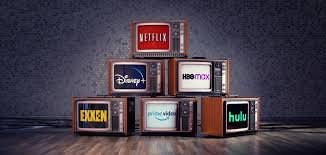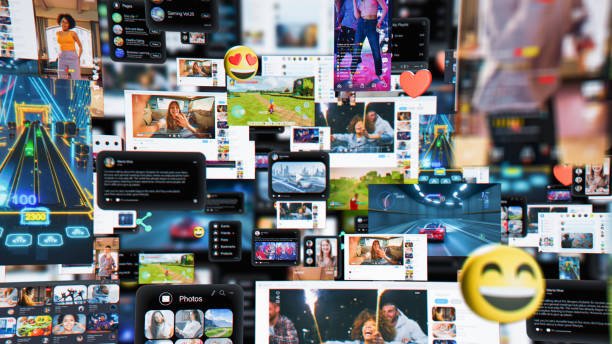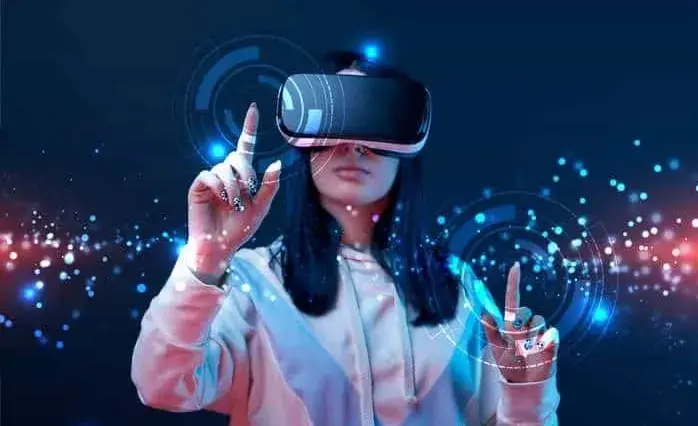The Power and Evolution of Entertainment A Journey Through Time and Trends
Entertainment has always been an essential part of human life. From ancient storytelling around campfires to modern-day streaming platforms, the ways we amuse ourselves have evolved dramatically. Whether through music, films, sports, theater, or digital content, entertainment serves as both a source of joy and a reflection of our culture. Today, it is more accessible than ever, offering a wide variety of options to suit every taste and preference.
A Brief History of Entertainment

The concept of entertainment is as old as civilization itself. Ancient societies relied on oral storytelling, dance, and music to pass down traditions and values. The Roman Empire popularized large-scale spectacles such as gladiator games, while medieval Europe embraced theater performances and festivals. As technology advanced, so did entertainment—printing presses brought literature to the masses, and later, cinema and television transformed how stories were told.
The Digital Revolution

The 21st century has brought an entertainment revolution like no other. The internet has not only expanded access but also reshaped the way content is created and consumed. Platforms like Netflix, YouTube, and Spotify have replaced physical media, offering on-demand access to millions of titles. Social media has blurred the line between creator and consumer, allowing anyone with a smartphone to become a performer.
This shift has empowered independent artists, filmmakers, and musicians to reach global audiences without the backing of major corporations. It has also encouraged niche genres to flourish, ensuring that every individual can find content that resonates with them.
The Impact of Streaming

Streaming services have become the backbone of modern entertainment. They provide instant access to movies, TV series, live sports, music, and even interactive content like gaming streams. Unlike traditional broadcasting, streaming allows users to control what, when, and how they watch or listen. This personalized approach has led to the rise of binge-watching culture and the global success of original productions.
However, the streaming boom has also created challenges. With so many platforms competing for subscriptions, audiences often face “content overload,” making it harder to choose what to watch. Additionally, the decline of physical media raises concerns about long-term content preservation.
Music remains one of the most universal forms of entertainment. From live concerts to curated playlists, it continues to connect people across languages and cultures. While streaming dominates everyday listening habits, live performances still hold a unique emotional power. Festivals, world tours, and intimate gigs provide experiences that cannot be replicated online.
Virtual concerts and augmented reality performances are also emerging, blending technology with live entertainment to create immersive experiences. These innovations were particularly crucial during the COVID-19 pandemic, when physical gatherings were restricted.
The Gaming Industry: Beyond Just Play
Video games have grown from niche hobby to global phenomenon. Today, gaming is one of the most profitable entertainment sectors, attracting players of all ages. The rise of esports—competitive, professional gaming—has turned players into celebrities and tournaments into major events broadcast worldwide.
Games now go beyond entertainment; they offer social interaction, creative expression, and even educational opportunities. Virtual reality (VR) and augmented reality (AR) promise to make gaming even more immersive, blurring the boundaries between reality and fantasy.
Cinema and Television
Movies and TV shows remain central pillars of entertainment, despite competition from digital formats. Big-budget blockbusters, thought-provoking indie films, and binge-worthy series continue to captivate audiences. The film industry is constantly experimenting with new storytelling techniques, including interactive narratives and cutting-edge visual effects.
Television, once limited to scheduled broadcasts, has embraced streaming, allowing audiences to watch on their own terms. Many networks now produce exclusive content for digital platforms to stay competitive in the rapidly changing market.
The Rise of Social Media Entertainment

Platforms like TikTok, Instagram, and Facebook have revolutionized short-form content. Viral challenges, comedy skits, and lifestyle vlogs can reach millions of viewers within hours. Social media influencers have become key players in the entertainment landscape, often shaping trends and consumer behavior more than traditional celebrities.
This democratization of fame has both positives and negatives. While it offers opportunities for fresh voices and diverse perspectives, it also raises concerns about misinformation, privacy, and the pressure to constantly create.
Why Entertainment Matters
Entertainment is more than just a pastime—it plays a vital role in mental and emotional well-being. It provides an escape from daily stress, sparks creativity, and fosters human connection. Whether through laughter, suspense, or awe, it allows us to experience emotions that enrich our lives.
Cultural representation in entertainment also matters. Films, music, and literature can challenge stereotypes, promote inclusivity, and give a voice to underrepresented communities. In this way, entertainment can be both enjoyable and socially impactful.
The Future of Entertainment

The future promises even more exciting developments. Artificial intelligence could personalize content recommendations to unprecedented levels, while blockchain technology might revolutionize how creators are paid and how audiences access exclusive content. Virtual reality could allow us to step inside movies, games, or concerts, creating fully interactive experiences.
One thing is certain: as long as people seek joy, inspiration, and connection, entertainment will continue to evolve and thrive.
Conclusion
Entertainment is a constantly changing reflection of society. From ancient performances to cutting-edge digital experiences, it remains one of the most powerful forces shaping our world. In a time where choices are endless, the true magic of entertainment lies in its ability to bring people together, spark imagination, and create moments we’ll never forget.

